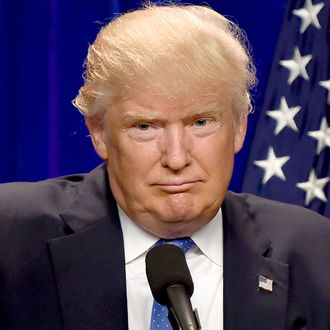
As a matter of procedural necessity, the effort to convince Republicans to push aside Donald Trump as their presidential nominee begins and ends with an initiative to change party rules that bind most delegates to the primary and caucus results. It will take one-fourth of the convention Rules Committee — 28 out of 112 members — to ensure a vote on an “unbinding” resolution on the floor after the convention has formally begun. A report in The Hill suggests Dump Trump members are not there yet and may never get there.
Kendal Unruh, a Colorado delegate leading the Dump Trump forces on the Rules Committee, only has 17 hard pledges of support for an “unbinding” resolution (though she claims additional “soft pledges”).
On a separate front, an anti-Trump delegate in Virginia has filed a lawsuit in federal court for relief from a state law that binds him to the primary results. Such laws affect an estimated one-third of the delegates. But as nomination-process wizard Josh Putnam persuasively argues, the suit, even if successful, does not do anything about state party rules that bind delegates independent of state laws or of national party rules. One reading of the situation is that delegation chairs are authorized to cast their state’s votes according to primary or caucus votes whether or not individual delegates consider themselves “bound.” And that could be a problem even if the Rules Committee revolt somehow succeeded and the convention voted to unbind itself.
All in all, it seems safe to say that something earth-shaking will have to occur in the larger political landscape to give the Dump Trump movement anything like real traction. As one of its warriors admitted to The Hill: “[Dump Trump needs] someone, somewhere, like [RNC Chairman] Reince Priebus or [Speaker] Paul Ryan or [Senate Majority Leader] Mitch McConnell to show an ounce of leadership if they’re to be successful. That’s been nonexistent so far.”
It’s hard to imagine all of that changing in less than three weeks.






























